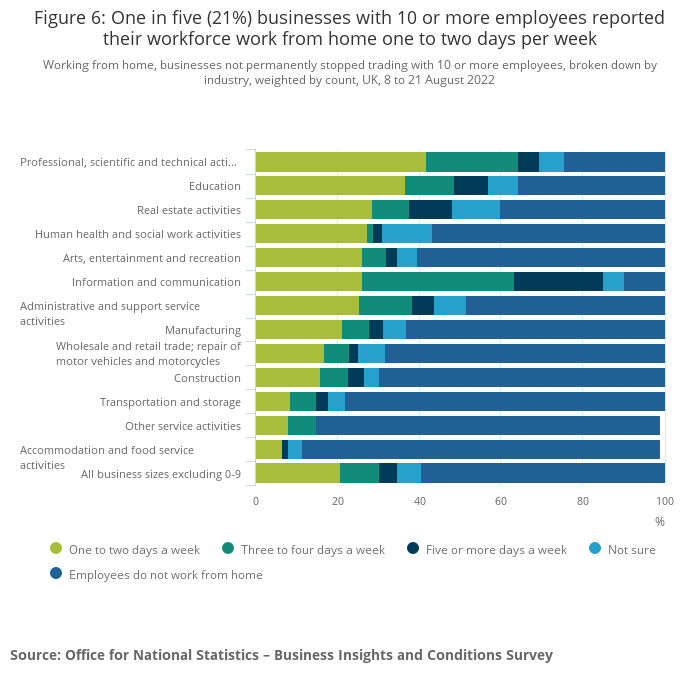The report highlighted that one in five (21%) businesses with 10 or more employees reported their workforce working from home one to two days per week.

Ben Stickland, Senior Recruitment Consultant – Public Sector at Procurement Heads, said, “It’s perhaps not surprising to see professional services – which procurement falls under – record one of the lowest rates of employees not working from home.
“Procurement careers, especially in the public sector, lend themselves to hybrid working.
“Furthermore, organisations that had been reluctant to embrace hybrid policies were forced to as a result of the pandemic – and have seen the benefits such policies can bring.
“Clearly, one of the major benefits of hybrid policies is that it opens up a far greater talent pool.
“Whereas before the pandemic people would generally only apply for jobs within a commutable geographic radius, hybrid opportunities have opened up far more vacancies.
“From talking to candidates and clients within the public sector, one thing I am increasingly noticing is businesses are expecting employees to be present in the office more, which is having an impact on travel times and therefore creating a reluctance from a candidate-side to consider certain companies.
“I am also finding that some of the most senior procurement and supply chain specialists are primarily working from home and only commuting to the office 2-3 days a month.
“Covid has changed how people perceive home working and the demands from candidates are increasingly for a hybrid work pattern.
“Procurement, much like recruitment, is a relationships-driven industry, and there will always be that balance of needing people on site and able to meet suppliers and stakeholders face-to-face to develop and strengthen those relationships.
“However, that shouldn’t be at the detriment to a company’s ability to recruit, especially when the best procurement and supply chain are still in such high demand.”
What’s the difference between hybrid and flexible working?
Hybrid working refers to the flexibility with the place of work, for instance, two days in the office and three days at home.
Flexible working covers the place of work as well as hours, time employees are expected to work and more.
If you’re a procurement professional in the public sector looking for your next opportunity, reach out and connect with Ben on LinkedIn.
Similarly, if you are an organisation in the public sector looking to recruit your next procurement hire, you can get in contact with the Procurement Heads team at info@procurementheads.com





